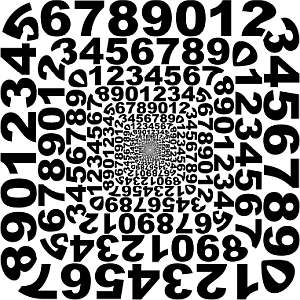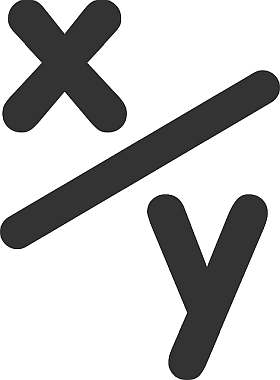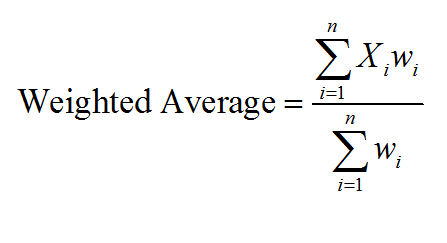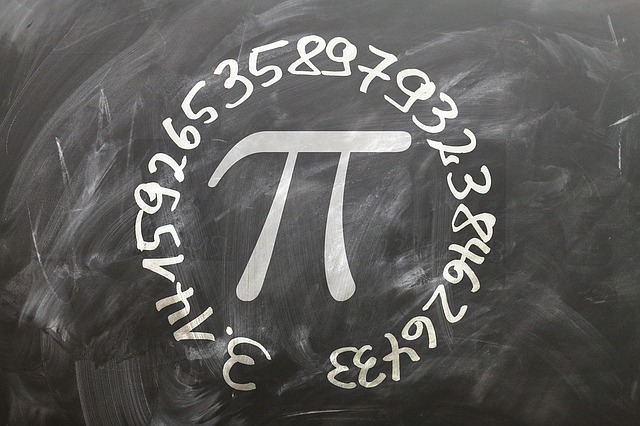Multiples of Fractions
Instructions: Use this calculator to find multiples of fractions or numbers. Please provide a number or fraction in the box below.
About this multiples of fractions calculator
This calculator computes multiples of a fraction that is provided. You can provide any valid number or fraction. For example, you can provide any number like '3', or a fraction like '3/4', etc.
After you have provided a valid number or fraction, all you have to do is to click on the "Calculate" button for the solver to show all the steps.
The process consists of just multiplying the value provided by 1, 2, 3, 4, 5, ...., 10. .

How do compute multiples of a fraction?
Super easy, just multiply the fraction by an integer. For example, for a fraction '1/3', its multiples are '1/3', '2/3', '3/3', '4/3', etc.
What are the steps for computing the multiple of a fraction or number
- Step 1: Identify the fraction for which you want to compute the multiples of
- Step 2: Multiply the fraction by 1, 2, 3, ... (positive integers). Typically you will compute 10 or more multiples
- Step 3: Simplify any of the fractions obtained above, if needed
Can you compute multiples of a number
Absolutely. And it is exactly the same idea: you start with a number you want the multiples of, then multiply that number by 1, 2, 3, 4, etc, and there you have the multiples.
For example, the multiples of 2 are: 2, 4, 6, 8, 10, etc.

Example: Calculating multiples of a fraction
Calculate multiples of 4/3.
Solution:
We need to simplify the following given fraction: \(\displaystyle \frac{ 4}{ 3}\). The following multiples of the given fraction are obtained:
For \(k = 1\):
\(\displaystyle 1\times\frac{4}{3}=\frac{4}{3}\).
For \(k = 2\):
\(\displaystyle 2\times\frac{4}{3}=\frac{8}{3}\).
For \(k = 3\):
\(\displaystyle 3\times\frac{4}{3}=4\).
For \(k = 4\):
\(\displaystyle 4\times\frac{4}{3}=\frac{16}{3}\).
For \(k = 5\):
\(\displaystyle 5\times\frac{4}{3}=\frac{20}{3}\).
For \(k = 6\):
\(\displaystyle 6\times\frac{4}{3}=8\).
For \(k = 7\):
\(\displaystyle 7\times\frac{4}{3}=\frac{28}{3}\).
For \(k = 8\):
\(\displaystyle 8\times\frac{4}{3}=\frac{32}{3}\).
For \(k = 9\):
\(\displaystyle 9\times\frac{4}{3}=12\).
For \(k = 10\):
\(\displaystyle 10\times\frac{4}{3}=\frac{40}{3}\).
Example: Calculation of the multiples of a number
Calculate multiples of 3.
Solution:
We need to simplify the following given number: \(\displaystyle 3\). The following multiples of the given fraction are obtained:
For \(k = 1\):
\(\displaystyle 1\times3=3\).
For \(k = 2\):
\(\displaystyle 2\times3=6\).
For \(k = 3\):
\(\displaystyle 3\times3=9\).
For \(k = 4\):
\(\displaystyle 4\times3=12\).
For \(k = 5\):
\(\displaystyle 5\times3=15\).
For \(k = 6\):
\(\displaystyle 6\times3=18\).
For \(k = 7\):
\(\displaystyle 7\times3=21\).
For \(k = 8\):
\(\displaystyle 8\times3=24\).
For \(k = 9\):
\(\displaystyle 9\times3=27\).
For \(k = 10\):
\(\displaystyle 10\times3=30\).
Example: More about multiples
Calculate multiples of 8
Solution:
We need to simplify the following given fraction: \(\displaystyle 8\). The following multiples of the given fraction are obtained:
For \(k = 1\):
\(\displaystyle 1\times8=8\).
For \(k = 2\):
\(\displaystyle 2\times8=16\).
For \(k = 3\):
\(\displaystyle 3\times8=24\).
For \(k = 4\):
\(\displaystyle 4\times8=32\).
For \(k = 5\):
\(\displaystyle 5\times8=40\).
For \(k = 6\):
\(\displaystyle 6\times8=48\).
For \(k = 7\):
\(\displaystyle 7\times8=56\).
For \(k = 8\):
\(\displaystyle 8\times8=64\).
For \(k = 9\):
\(\displaystyle 9\times8=72\).
For \(k = 10\):
\(\displaystyle 10\times8=80\).
More fraction calculators
The importance of fractions in mathematics cannot be underplayed. There are many important applications of fraction. First, you can use this fraction calculator to see the steps of a possible cumbersome calculation if done manually.
For more general algebraic manipulation, you can use our algebraic expression calculator.



